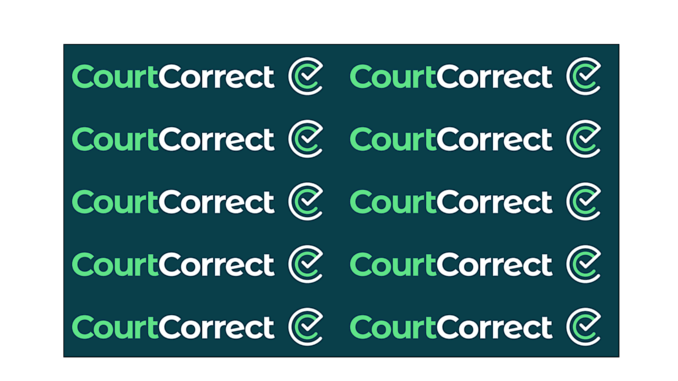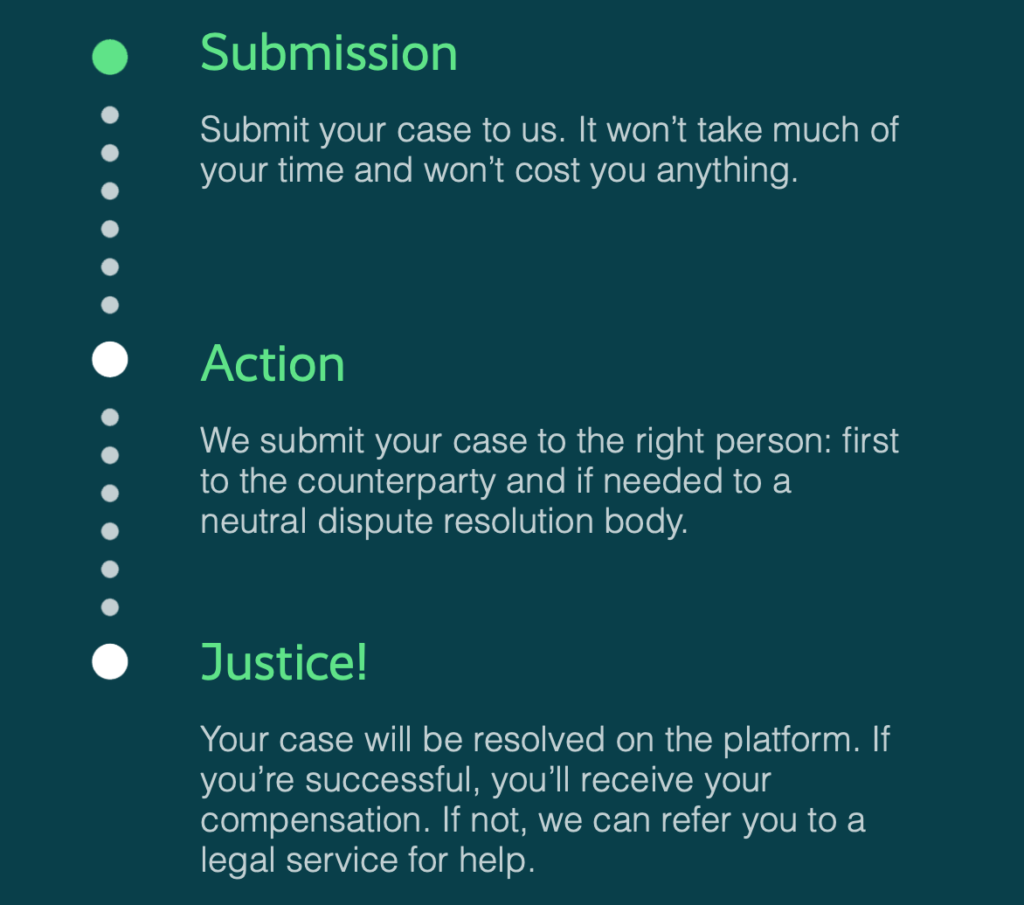
CourtCorrect, an alternative dispute resolution (ADR) startup that includes NLP-driven case prediction and matter management capabilities, has bagged £2m in investment and added litigation finance expert Nick Rowles-Davies to its Advisory Board. It’s also announced a partnership with legal insurance provider AXA-ARAG.
The platform is aimed at bringing aboard claimants, defendants, lawyers, case handlers and judges, from where a resolution of the matter can be made, and a payout agreed, without having to go to court.
There is also a focus on automating processes, such as using NLP to help with claim analysis and outcome prediction for case handlers and lawyers. There are also some marketing facilities for lawyers who want to take up the cases that are registered with the platform. The company currently has 16 staff.
It was started by Ludwig Bull, who has been creating legal tech startups since his Cambridge University days, and who previously ran litigation outcome prediction pioneer, CourtQuant.
The platform works like this: ‘Claims will be resolved between the parties or through integrated ombudsmen services. The platform triages claims automatically and facilitates transparency and seamless communication between the parties. It also refers you to legal service providers if necessary.’
And on the case management side of things, they offer: ‘No more patchwork of email, Word and calendar. Manage everything legal in one place. Your dashboard includes all the necessary tools: standardised case submission, automated correspondence and documentation save you time. Our AI advises you on the next steps to take. You can easily share files with anyone and communicate between teams.’
For claimants they offer this process:

And, for defendants:

Bull told Artificial Lawyer that things at the startup were going well and that more than 1,000 cases have already been resolved on the platform, with a total value of around £28m. That also suggests the average value of cases handled are in the low tens of thousands of pounds.
‘We have customers in Japan, Switzerland, Germany, the UK and are now expanding to the US. We offer customers i) a user-friendly case management system to which legal professionals and their clients have access ii) a modular AI-system which lets clients define their own labels for any case and train their own models to predict anything they like and iii) help with marketing their services and connecting with consumers and SMEs,’ he added.
The company also explained in a statement: ‘In order to make this [dispute] process as seamless as possible, CourtCorrect directly connects and integrates … legal service providers, courts and claims handlers. This centralisation of the entire legal system in a single platform has the potential to make dispute resolution and claims handling cheaper, faster and more accessible.
‘The dynamic heart of the platform is CourtCorrect’s ground breaking legal AI. It provides law firms, insurers, courts and claim handlers with high-quality legal analysis of incoming cases [i.e. a level of outcome prediction based on comparison with past cases of the same type].
‘Combined with automation tools and easy communication and file-sharing solutions, the platform reduces the case management to just a few clicks. With the accuracy and speed of casework thus pushed to futuristic levels, firms and adjudicators can massively scale up their operations.’
Bull also pointed out that there is a gap in the market for the platform: ‘Many people and businesses do not access the legal system because it is complicated and expensive.
‘Our platform is an alternative to the court system where you simply submit your case and our automatic resolution process will take care of it for free. It loosely follows the steps, from negotiation to resolution, that would be taken in the real world – except it’s simple, hands-off and risk-free.’
Rowles-Davies, who is joining the Advisory Board, is the vice chairman of LCM, a well-known litigation finance house. He added: ‘It’s time for dispute resolution to open up to the opportunities of AI and technology. Industry disruptors like CourtCorrect are far ahead. As a member of the Advisory Board I will try to build a bridge between both worlds and ease reservations.’
One could certainly see how a combination of this platform with perhaps the legal insurance cover that SMEs might purchase from the likes of AXA-ARAG would lead to a steady stream of users of the ADR system.
It also could help to address some of the issues around SME access to justice that groups such as LawtechUK have highlighted.
Overall, there is a lot going on here within the platform, but that’s all part of Bull’s vision of everyone involved in disputes, e.g. claimants, ADR services, case handlers at insurance companies, and law firms, all coming together in one place – and then supported by a wide range of tech tools to smooth the journey.
It looks like it is already making progress and the backing it now has gives it additional credibility. The market will be looking on with interest to see how this grows.